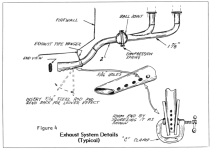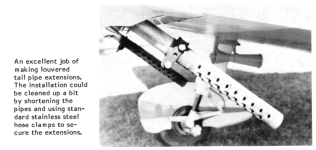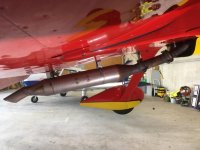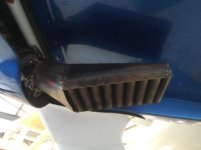edmondthx1138
Member
Does anyone have experience or an opinion on modifying the muffler or exhaust pipe to reduce noise? My research indicates that a large amount of engine noise comes from the hot cases escaping and causing pulses.
The simplest solution I can think of is expanding the diameter of the exhaust pipe, and/or its length, and/or adding some kind of silencer baffles.
Any thoughts?
The simplest solution I can think of is expanding the diameter of the exhaust pipe, and/or its length, and/or adding some kind of silencer baffles.
Any thoughts?









